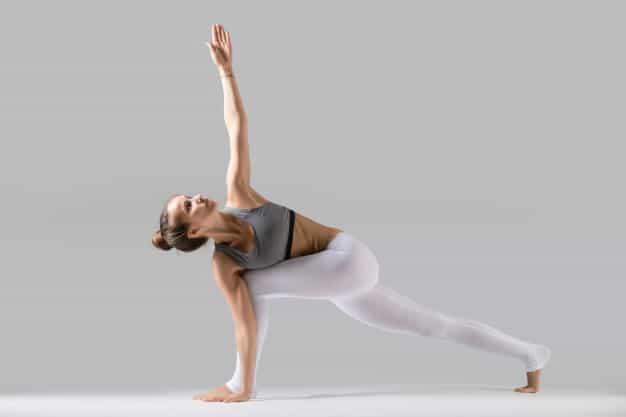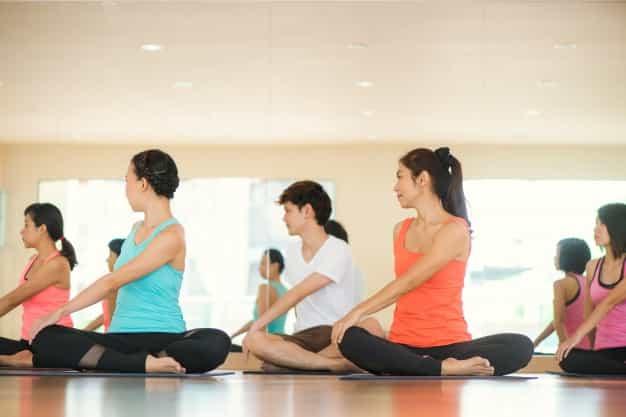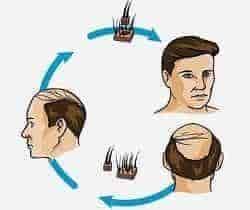How to choose perfect Yoga Program that suits you
Author: Ben Tomasino | March 27th, 2018
Yoga is seeing a surge in popularity like never before with studios and training programs mushrooming everywhere you look. Be it the traditional way of teaching or more modern hybrid programs, each and every yoga school’s training varies in style, systems and philosophy. Many older gurus stick to the ancient lineage of practice, while more modern teachers try to innovate by devising and implementing their own vision. In the urban cities, it is not uncommon to find hybrid or modernized yoga courses that are tailored to suit contemporary lifestyles or stress more on the physical aspect.
All this can get confusing for novices trying to choose a suitable yoga training program. Consider the following factors when exploring yoga training programs.
Handling of the subject
Yoga is a complex stream of knowledge that is deeply fascinating in various aspects. Although most yoga philosophies tend to follow a similar path, every school or trainer of yoga tries to bring their own unique spin to the practice. For instance, schools in the east are more likely to stress on the “basics” and also delve deep into the spiritual aspect. It’s not that western schools abstain from this approach altogether, but in the east you are more likely to learn from an established lineage with a more immediate connection to the original source. It is also common for eastern schools to feature additional topics of study such as Ayurveda or Acupuncture. It’s best to obtain the course details or a schedule from the school in advance to have a better understanding of how the subject is handled.
The Yoga Style

The style of yoga you opt for should be based on your objectives. It should reflect your life goals. Those who are inclined toward athletic activities, may want to explore a vigorous style of yoga such as the Ashtanga or Vinyasa. If you want to benefit from the healing or therapeutic aspects, you may choose an appropriate school of yoga training. If you are unable to make up your mind, try out some beginner level programs at the studios to understand the difference between various styles firsthand.
Yoga as a career
Decide beforehand what you wish to achieve from a yoga training program. Given the money, time and effort that goes into completing a yoga course, it is very important to determine this early on. If you wish to pursue a certification that you can use to become a trainer at the local gym, a modern-day certification may be all that you need. However, if you aspire to teach at a prestigious school or open up your own studio, you may need to pursue an established program at a reputable school that teaches the subject deeper.
It would be worth remembering that some studios only hire those instructors who acquire their own certification. So if you wish to teach at a particular school, it’d be better to do some research on their recruitment policy. Also, be aware that any certification not approved by the International Association of Yoga Therapy or the Yoga Alliance or may not be accepted at other studios.
Lifestyle Adjustment

Whether graduating from college, dealing with a personal crisis or looking for a shift in life or career, the study of yoga can be very effective as a transition tool.
Learning from various gurus and traveling abroad can be an exceptional experience for the adventurous spirit, but not possible for everyone. Individuals who are not bogged down with responsibilities may enjoy more flexibility with respect to time and finances. People who have families or travel constantly in relation to work may find a local program a better fit for their lifestyle.
Commitment

Yoga is a specialty, certification of which comes at a price. Most accredited certifications cost several thousands of dollars for a 200RYT, 500RYT or yoga therapy-training program. At times, some schools include accommodation, food, books and other amenities in their package. Look at what all are included in the package and what costs extra. For instance, in popular holiday destinations or resorts, schools may not provide room and food amenities. Outstation travelers will also need to factor in the cost of transport, visas and other such unavoidable expenses that come in addition to the training fees. Unless on a paid vacation, yoga students may have to forego their income during studies, which is another important factor to consider.
A Journey of Self-Discovery

Are you struggling with any personal issues and trying to overcome those through the pursuit of Yoga? Some yoga instructors are those who took to yoga to overcome personal issues and have since used that success effectively in their own training. Taking up SUP yoga teacher training abroad can be a transformative experience—trainees are removed from their “regular life” and immersed in a yoga lifestyle throughout the training. Utilize this time for introspection, self realization and discover how to employ yoga to attain one’s path or purpose in life.
*****
Author Bio

Originally from France, Ben established KiteWest in Geraldton, Western Australia after discovering it was the perfect place to combine his passion for the ocean, the outdoors and adventure. In a few short years KiteWest has grown from only offering kiteboarding lessons to incorporating personalized 4WD tours along WA’s magnificent Coral Coast and an array or Watersport activities. Ben writes about kitesurfing and related Watersport activities in his spare time.





.jpg)



